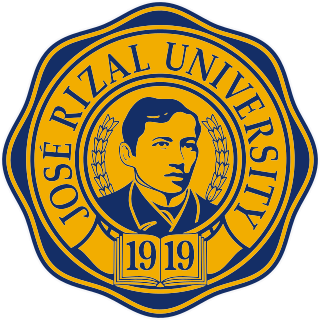
Justice, in its broadest sense, is the principle that people receive that which they deserve, with the interpretation of what then constitutes "deserving" being impacted upon by numerous fields, with many differing viewpoints and perspectives, including the concepts of moral correctness based on ethics, rationality, law, religion, equity and fairness. The state will sometimes endeavor to increase justice by operating courts and enforcing their rulings.
Social justice is justice in terms of the distribution of wealth, opportunities, and privileges within a society. In Western and Asian cultures, the concept of social justice has often referred to the process of ensuring that individuals fulfill their societal roles and receive their due from society. In the current movements for social justice, the emphasis has been on the breaking of barriers for social mobility, the creation of safety nets, and economic justice. Social justice assigns rights and duties in the institutions of society, which enables people to receive the basic benefits and burdens of cooperation. The relevant institutions often include taxation, social insurance, public health, public school, public services, labor law and regulation of markets, to ensure distribution of wealth, and equal opportunity.

A barangay, historically referred to as barrio, is the smallest administrative division in the Philippines and is the native Filipino term for a village, district, or ward. In metropolitan areas, the term often refers to an inner city neighborhood, a suburb, or a suburban neighborhood or even a borough. The word barangay originated from balangay, a type of boat used by a group of Austronesian peoples when they migrated to the Philippines.

José Paciano Laurel y García was a Filipino politician, lawyer, and judge, who served as the president of the Japanese-occupied Second Philippine Republic, a puppet state during World War II, from 1943 to 1945. Since the administration of President Diosdado Macapagal (1961–1965), Laurel has been officially recognized by later administrations as a former president of the Philippines.

Ateneo de Davao University is a private Catholic basic and higher education institution run by the Philippine Province of the Society of Jesus in Davao City, Davao del Sur, Philippines. It was established in 1948 when the Jesuits took over the administration of the diocesan school, St. Peter's Parochial School. The Jesuits renamed the school to "Ateneo de Davao" after taking control. The Jesuits were naming all the schools that they were opening at that time Ateneo. Ateneo de Davao is the seventh school in the country to be named as Ateneo by the Jesuits. The university has five undergraduate schools, namely the School of Arts and Sciences, School of Business and Governance, School of Engineering and Architecture, School of Education and the School of Nursing. The graduate programs are under these units as well. The College of Law is a separate unit within the university. The university also runs a grade school and high school, both Junior High and Senior High.

The Supreme Court is the highest court in the Philippines. The Supreme Court was established by the Second Philippine Commission on June 11, 1901 through the enactment of its Act No. 136, an Act which abolished the Real Audiencia de Manila, the predecessor of the Supreme Court.

José Rizal University, also referred to by its acronym JRU is a private non-sectarian, non-stock coeducational basic and higher education institution located in Mandaluyong, Metro Manila, Philippines. It was founded in 1919 by Don Vicente Fabella, the Philippines' first certified accountant. José Rizal University is one of the schools situated in the east side of Mandaluyong, the others being Arellano University – Plaridel Campus and Don Bosco Technical College.

The National Democratic Front of the Philippines (NDFP) is a coalition of revolutionary social and economic justice organizations, agricultural unions, trade unions, indigenous rights groups, leftist political parties, and other related groups in the Philippines. It belongs to the much broader National Democracy Movement and the communist rebellion in the Philippines.
Social movement unionism (SMU) is a trend of theory and practice in contemporary trade unionism. Strongly associated with the labour movements of developing countries, social movement unionism is distinct from many other models of trade unionism because it concerns itself with more than organizing workers around workplace issues, pay and terms and conditions. It engages in wider political struggles for human rights, social justice and democracy. Social movement unionism grew out of political struggles in developing countries and was theorized as a distinct industrial relations model in the late 1980s and early 1990s.
Human rights in the Philippines are protected by the Constitution of the Philippines, to make sure that persons in the Philippines are able to live peacefully and with dignity, safe from the abuse of any individuals or institutions, including the state.

The Philippines' Department of Social Welfare and Development is the executive department of the Philippine Government responsible for the protection of the social welfare of rights of Filipinos and to promote the social development.

The Professional Regulation Commission, otherwise known as the PRC, is a three-man commission attached to Department of Labor and Employment (DOLE). Its mandate is to regulate and supervise the practice of the professionals who constitute the highly skilled manpower of the country. As the agency-in-charge of the professional sector, the PRC plays a strategic role in developing the corps of professionals for industry, commerce, governance, and the economy.

The Court of Tax Appeals is the special court of limited jurisdiction, and has the same level with the Court of Appeals. The court consists of 8 Associate Justices and 1 Presiding Justice. The Court of Tax Appeals is located on Agham Road, Diliman, Quezon City in Metro Manila.

The role of women in the Philippines is explained based on the context of Filipino culture, standards, and mindsets. The Philippines is described to be a nation of strong women, who directly and indirectly run the family unit, businesses, government agencies and haciendas.

Teresita "Tess" Leonardo-De Castro is a Filipina who served as the 24th Chief Justice of the Supreme Court of the Philippines; appointed by President Rodrigo Duterte on August 28, 2018. She assumed the vacated position since her predecessor, Maria Lourdes Sereno, was removed via a quo warranto petition ; making De Castro the de jure 24th chief justice, making her the official first female chief justice of the Supreme Court.

Ana Theresia Navarro Hontiveros-Baraquel is a Filipino politician, community leader, and journalist who has been serving as a senator of the Philippines since 2016. She previously served as a party-list representative for Akbayan from 2004 to 2010. She is the de facto leader of the opposition to the administration of President Bongbong Marcos, following the end of Vice President Leni Robredo's term.
The Constitution of the Philippines is the constitution or the supreme law of the Republic of the Philippines. Its final draft was completed by the Constitutional Commission on October 12, 1986, and ratified by a nationwide plebiscite on February 2, 1987.

The Polytechnic University of the Philippines College of Law, abbreviated as CL, is the law school of the Polytechnic University of the Philippines located in Manila, Philippines that was established in 2001. It ranks as one of the top law schools in the country in terms of percentile passing rate in the bar examination.

The Philippine Senate Committee on Social Justice, Welfare and Rural Development is a standing committee of the Senate of the Philippines.














